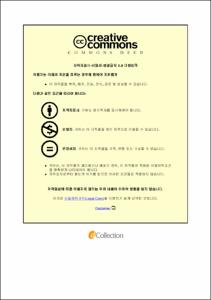영어 동사 ‘WIN’과 한국어 ‘이기다’ 중국어‘赢’(yíng)에 대한 어휘유형론적 분석
- Alternative Title
- A Lexical Typological Approach to the English Verb 'win' and its Chinese Counterpart 'ying' and Korea Counterpart ‘ikida’
- Abstract
- This study aims to analyze the English verb ‘win’, Chinese counterpart ‘ying’ and Korea counterpart ‘ikida’ using the framework of Lexical Typology suggested in Francois(2008). And it shows the semantic network of ‘win’ based on the ontological or functional properties of each sense and empirical observations. Besides, it also shows the sematic maps of the verbs: Chinese colexifies the sense related to competing field and iteration while English colexifies all the related to spoils, competing field, and iteration.
This study reveals the reason why we can use all the words in competing field and iteration in Chinese. Apart from the comparison of English “win” and Chinese ‘ying’, this study puts Korea word ‘ikida’ into the comparison. It discusses why ‘his wife’ in ‘He won his wife in a card game’ is interpreted as a spoils in English and as an opponent in Chinese.
- Issued Date
- 2019
- Awarded Date
- 2019. 8
- Type
- Dissertation
- Publisher
- 부경대학교
- Affiliation
- 부경대학교 대학원
- Department
- 대학원 영어영문학과
- Advisor
- 김은일
- Table Of Contents
- I. 서론 1
1. 연구의 필요성 및 목적 1
Ⅱ. 이론적 배경 5
2.1 영어win과 중국어赢(ying)의 사전적 의미 5
2.2 어휘유형론의 연구 절차 및 방법 7
2.2.1 의의 구분하기 7
2.2.2 의의들 간 연결하기 11
2.2.3 어휘 의미지도 그리기 13
Ⅲ. ‘win'과'이기다','赢了(yingle)의 어휘의미지도 그리기 15
3.1 ‘win'과’赢了(ying le)‘의 언어외적 기준연결망 15
3.1.1 전리품 16
3.1.2 경쟁상대 18
3.1.3 경쟁분야 19
3.1.4 점수 차이 20
3.1.5 횟수 20
3.2 ‘win'과 ’이기다‘,’赢了(ying le)’의 의미지도 21
3.2.1 전리품 25
3.2.2 경쟁상대 29
3.2.3 점수 차이 34
3.2.4 횟수 34
3.2.5 경쟁분야 35
Ⅴ. 결 론 39
참고문헌 43
참고사전 45
- Degree
- Master
- Files in This Item:
-
-
Download
 영어 동사 ‘WIN’과 한국어 ‘이기다’ 중국어‘赢’(yíng)에 대한 어휘유형론적 분석.pdf
기타 데이터 / 604.55 kB / Adobe PDF
영어 동사 ‘WIN’과 한국어 ‘이기다’ 중국어‘赢’(yíng)에 대한 어휘유형론적 분석.pdf
기타 데이터 / 604.55 kB / Adobe PDF
-
Items in Repository are protected by copyright, with all rights reserved, unless otherwise indicated.